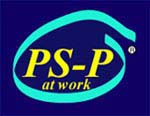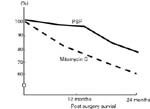|
| |

|
Dear Doctors and health
professionals:
We all recognize the immune modulation, and cancer inhibition property of Coriolus, and
I wish to clarify a very important point that you as health
professionals should be aware of.
Mycelium of mushroom, similar to
the stage of bean sprouts, or alfalfa sprout, is the most
nutritious stage of the mushroom, which is tender and soft.
Mycelium is not like fruiting body (the mushroom we usually see is
called fruiting body) which are encapsulated and protected by
indigestible hard woody fibrous cell walls, which prevent
conventional methods from extracting the nutrients, and human
digestion.
PSP is a large complex, molecular
weight at 1 x 105 Da. formed by many monosaccharides
that are structurally bonded together with proteins (peptide)
located intracellularly, i.e., inside and on the cell walls. One
must break the cell walls of the mycelium to extract PSP complex. Conventional hot water
extraction of polysaccharide claimed on some products is
not as effective as true Polysaccharide
Peptide compound.
The keys for selection of a correct
product are:
-
The type of mushroom. "Coriolus versicolor"
(Cloud mushroom, Yun-zhi, Turkey tail).
-
The strain of mushroom.
CM-101 makes PSK, Cov-1 makes PSP.
-
The source and
method of
extraction. "100% Mycelium &
Intracellular Extract. (Sterilized
media, absolutely no heavy metal, yeast or pathogens)
-
Intracellular extract from mycelium requires the same
technology as making antibodies, which requires a group
of highly refined technologies working together. Don't be
confused with fruiting body extract, non-intercellular substitute
products being offered to the public.
-
PSP
is more than
just simple Coriolus mushroom extract.
-
Naturally extracted
ranging from 18%- 65% of Polysaccharide peptide complex, so as
to take the advantages of all fractions of the
Coriolus, and not lose
other nutrients in the formulation, higher concentration is possible but is
not needed..
-
Wild fruiting body is seasonal,
and it's difficult to control their freshness, quality,
and the environment where they were collected from, all of
which contribute to unaffordable high price. ( Organic ?? )
-
PSP contains more then only
Alpha 1,4; beta
1,3 and beta 1,6 glucans. Its different types of non-digestible
monosaccharides
act as
"cheating" agents to starve the cancer cells, also to stimulates
the immune system. Its peptide act to create more open address for
lymphocytes thus enhances the immune function.
-
PSP is a very effective delivery
vehicle, its polysaccharides and peptide offer many open address to the
receptors thus could be used to carry many substance to their desired location. It
opens
channels and meridians; it enhances other substances. It is highly
advantageous to use PSP within other formulas.
-
Check on the Blood
pictures, increasing of WBC, increasing in lymphocyte ( NK cells), and reduction of
Eosinophile, and basophile.
Sincerely Yours,
PSP Extracts
Inc.
Other mushroom mycelium extracts
such as Cordyceps sinensis, Ganoderma lucidum (Reishi), Polyporus frondosus (Maetake), Lentinus edodes(Shiitake) are available upon request.
|
|

|
Table
IV. The inhibitory effect of
SPCV, PSP, and PSK on
leukemia cell
|
Inhibition
%
|
|
|
|
|
Drug
conc. (ug/ml)
|
100
|
400-500
|
800-1000
|
|
SPCV
|
91.2 ± 2.3
|
99.3
± 0.1
|
99.5
± 0.1
|
|
PSP*
|
11.7
± 11.6
|
78.8
± 28.0
|
87.4
± 16.0
|
|
PSK*
|
57.7
± 28.9
|
33.0
± 3l.0
|
13.5
± 18.0
|
-
HL-60 cells
were cultured with different concentration of drugs
-
for 48 hrs. Cytotoxic activities of the
drugs were assessed by 3 H-TdR
incorporation for 24 hrs.
-
*Data obtained from the report of
Shanghai Teachers University (17).
|
PSP and PSK both are made
of pure mycelium extract.
Tsukagoshi,S., Hashimoto, Y., Fujii, G.,
Kobayashi, H., Nomoto, K. and Orita, K. Krestin(PSK), Cancer Treatment
Reviews (1984) 11, P131-155
|